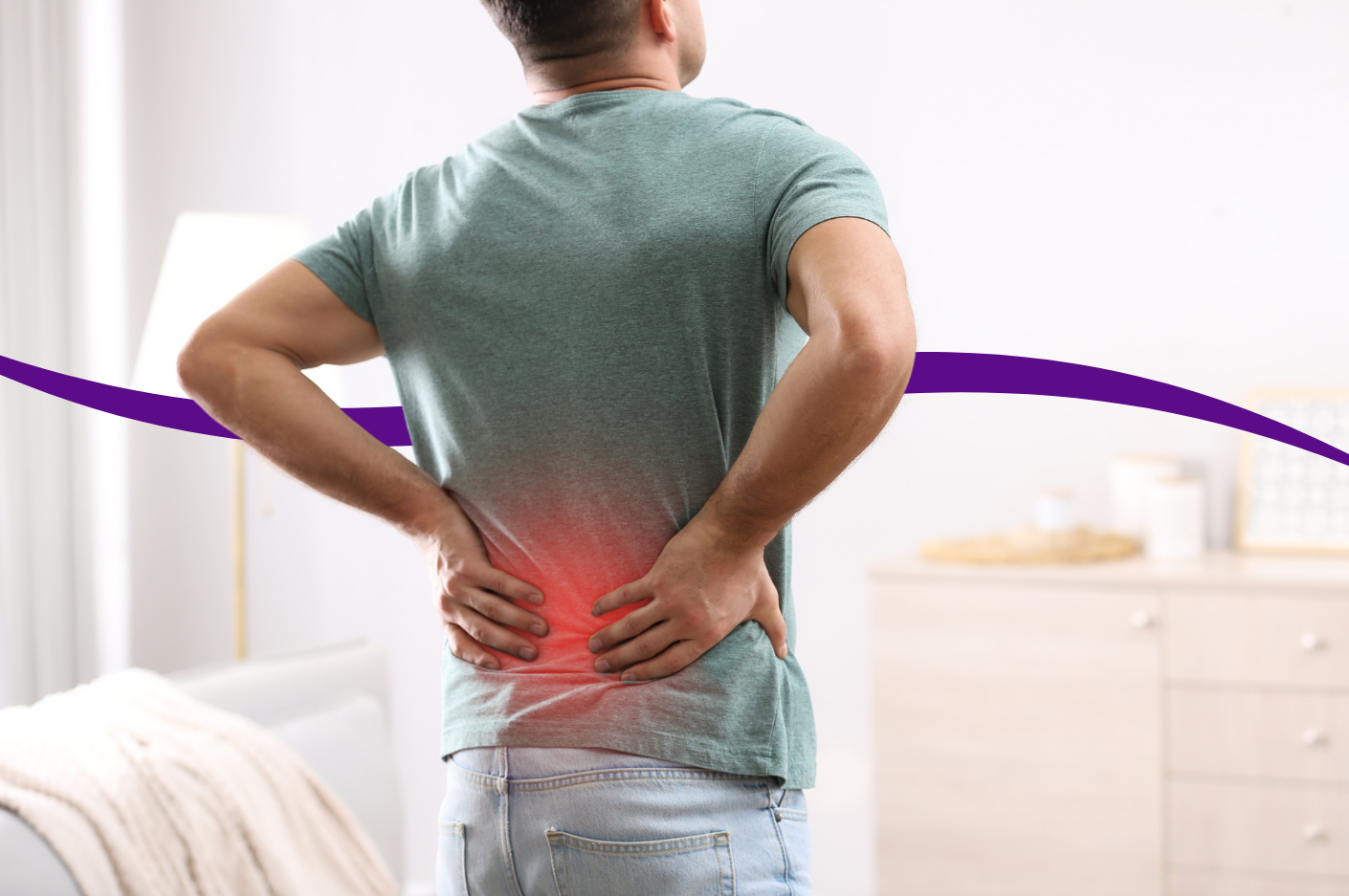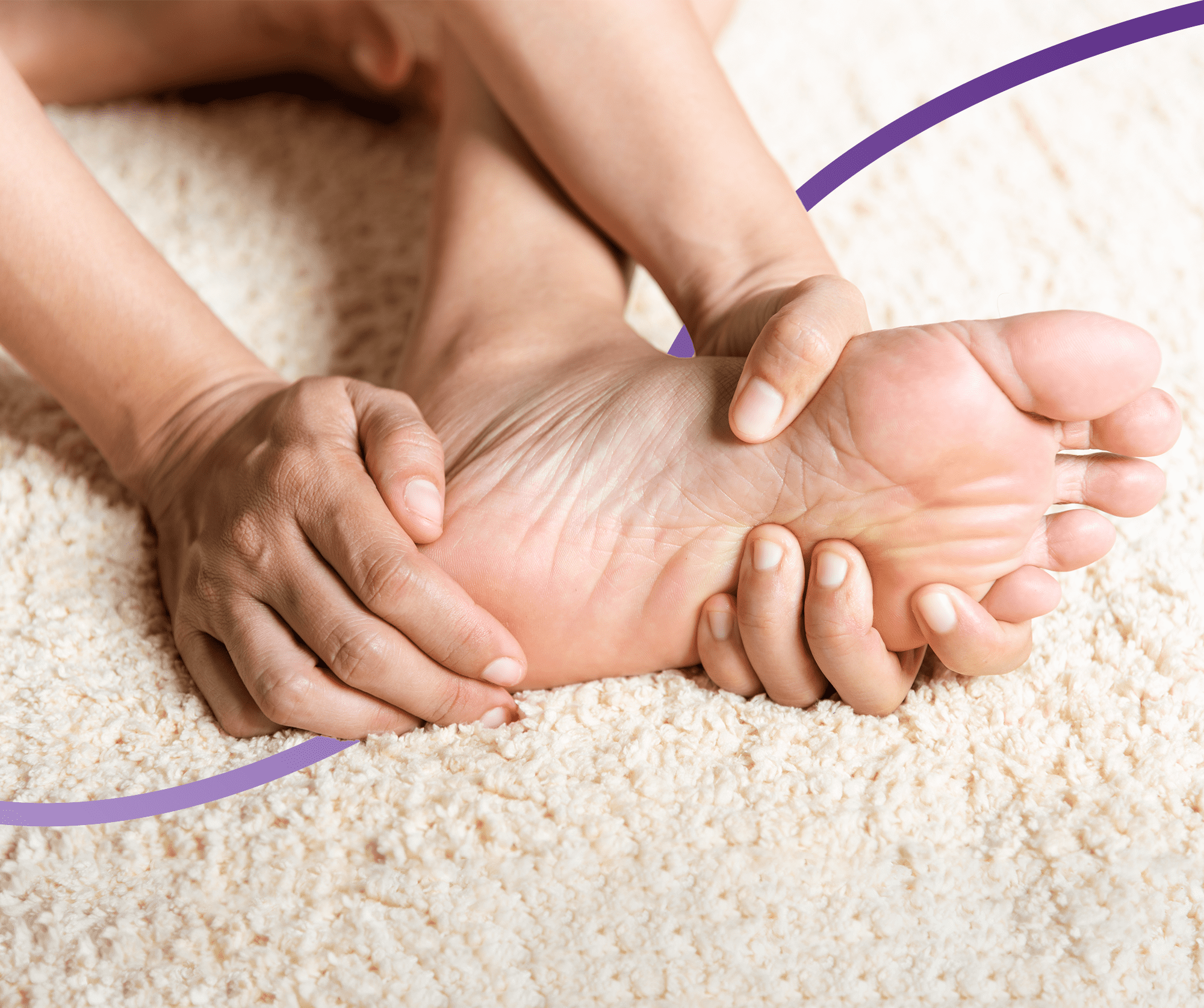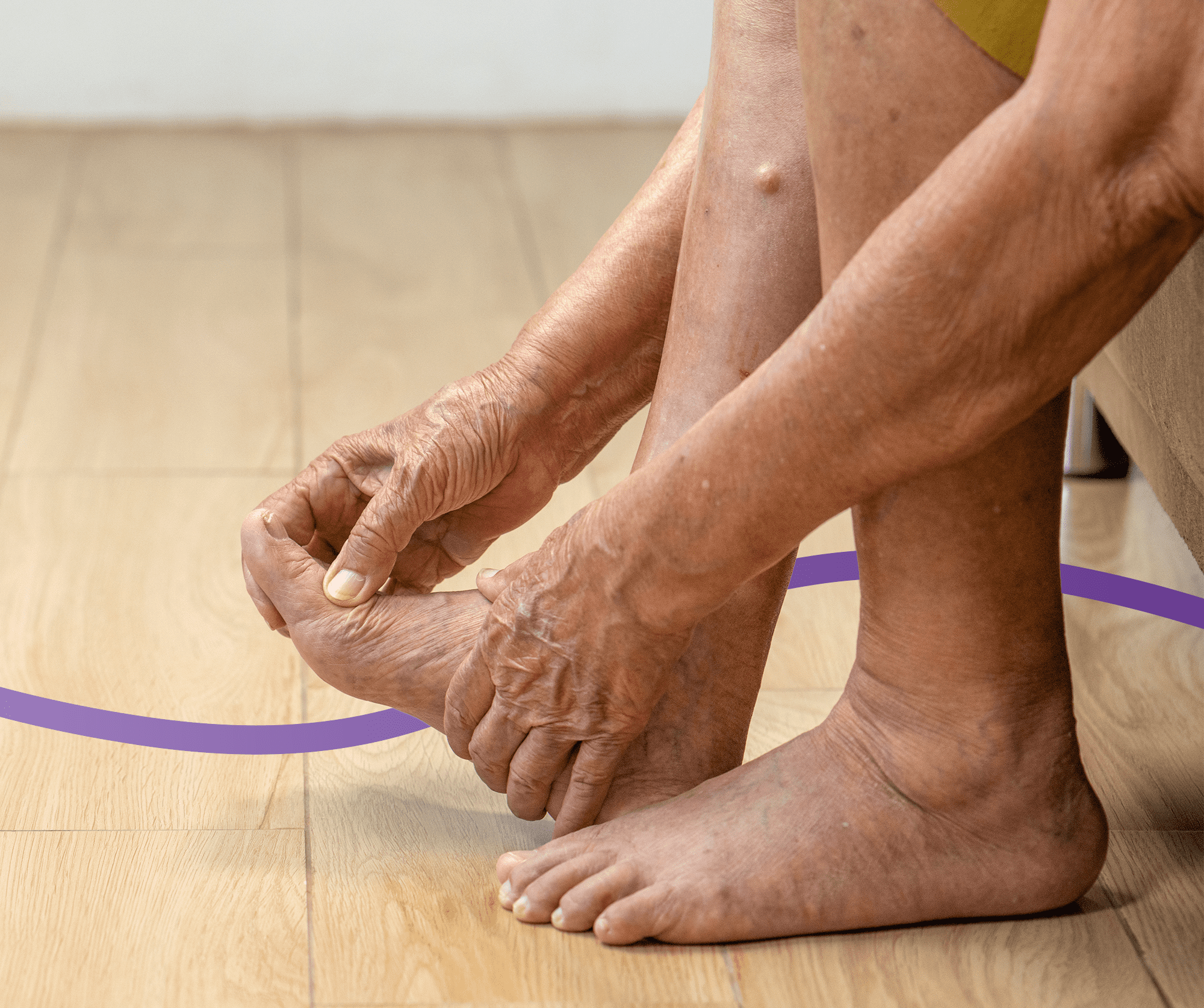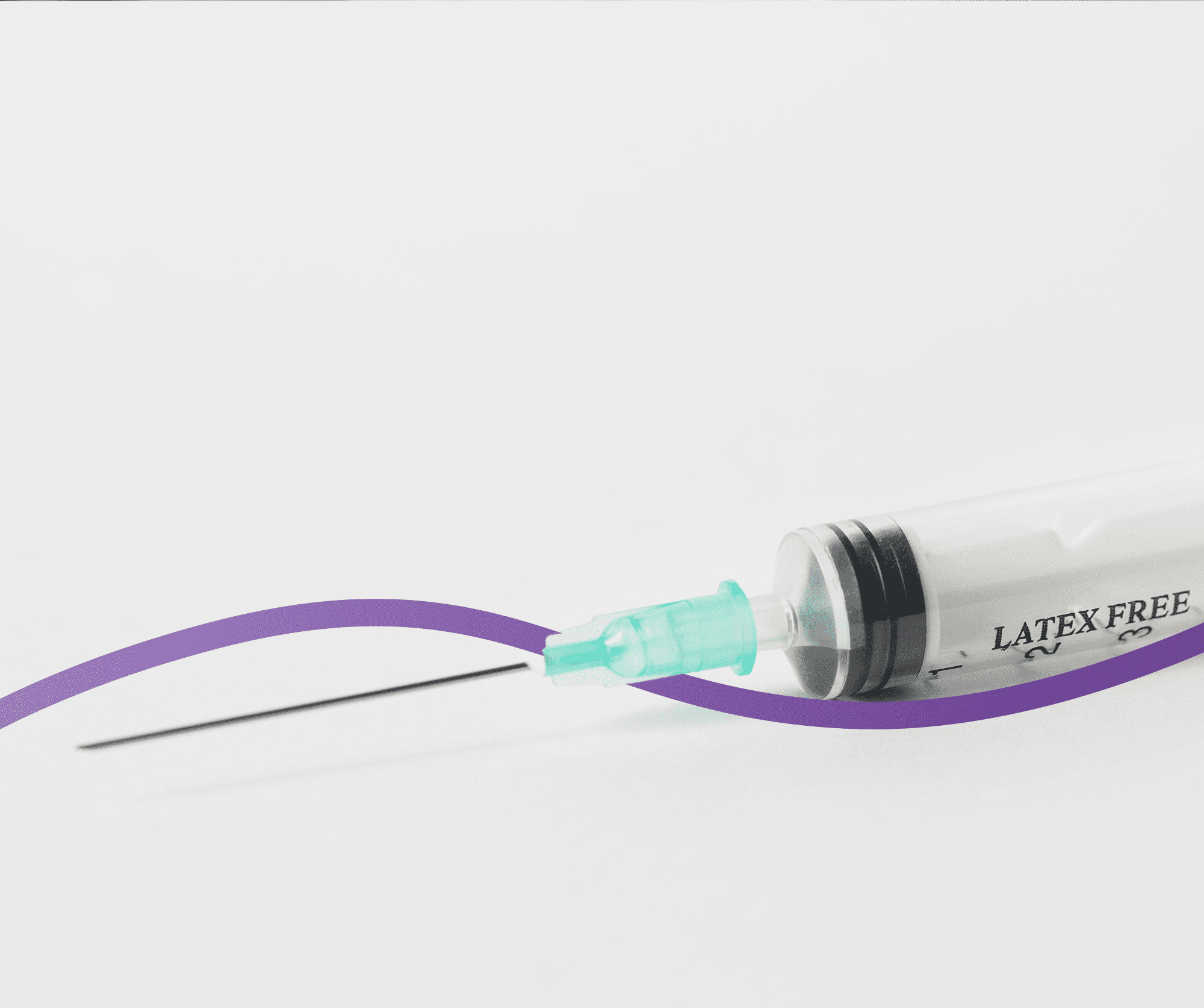

Heel pain is by far one of the most common problems our podiatrists see and treat in our Brisbane clinics. It comes in a range of severities, with some of our patients feeling mild yet frustrating symptoms for months on end, some with ‘lightning bolt’ first step pain every morning, and others with debilitating pain that barely lets them put their heel down on the floor.
With such a common yet diverse condition, it’s not surprising that there’s a range of myths out there about heel pain - and you may be surprised about how many people come to us saying these myths directly when explaining their pain, saying it has occurred just because they’re getting old, or that they’ve inherited their heel pain from their parents.
So today, our podiatrists are setting the record straight about nine common heel pain myths - and showing you how you can get started to get rid of your heel pain for good.

Heel Spurs Are The Cause Of My Heel Pain
If you have an x-ray that shows a heel spur, it’s only natural to think the two are related - how could an uncomfortable, sharp-looking spur not be the cause of your heel pain? Well, you may be surprised to learn that approximately 1 in 10 people have heel spurs - regardless of whether they have heel pain or not. And of those that do have heel spurs, only 5% are estimated to experience any heel spur-related foot pain, according to the American Academy of Orthopaedic Surgeons. This means that for most people, whether they have a heel spur or not will be unrelated to their heel pain!
The more likely cause of heel pain is plantar fasciitis, the inflammation of a tissue called the plantar fascia which inserts into the bottom of the heel. Research confirms this with one study showing heel spurs to be a normal variant in the foot and only 3% of heel spurs being located within the plantar fascia, which could mean that it could damage the fascia and produce heel pain. Another study that looked at patients with heel pain in one foot showed that almost half of them had heel spurs in both feet, while 39% had no heel spurs in either foot. A few even had a heel spur in the opposite foot to the one they were experiencing their pain in.
Have Heel Pain Because I Have Flat Feet
This myth tends to stem from the belief that flat feet are bad. While we agree that for some people, the cause of their heel pain is because their flatter foot posture significantly overloads their plantar fascia past the point that it can handle and damage occurs, we strongly disagree that this is the case for everyone. Even more so, for those where flat feet play a role, there are often other factors that add to the equation, such as wearing unsupportive shoes, spending long hours on your feet, having a tight Achilles tendon and plenty more.
What this means is that you shouldn’t feel like you’re sentenced to lifelong heel pain just because you have flat feet - because
you’re not. There are many people with flat feet who don’t get heel pain, and plenty more with arches who do get
heel pain. Come in to see your podiatrist, so you can understand the real cause of your heel pain, and how to treat it.

Kids Heel Pain (Growing Pains) Must Be Waited Out: There’s Nothing We Can Do
Growing pains at the heels is known as Severs disease, a condition where the growth plates at the heels are inflamed. We’re not exactly sure where the notion that the only solution to growing pains is waiting for it to fix itself came from, but it’s a big myth we’re focusing on busting because it’s simply not true.
Like any medical condition, growth plate inflammation has a cause, and if we understand this cause, we can treat it. This may look like a custom strengthening plan for the Achilles tendon, using foot orthotics for their foot posture, or switching to a supportive pair of shoes. Your podiatrist will give you the best recommended course of action after an assessment. While you can choose to wait, your child may be left waiting months or even years, experiencing pain during or after physical activity, and being forced to miss out on team sports and social activities.

I Have Heel Pain Because I’m Getting Old
Aging is definitely used to blame a lot of things these days, and developing heel pain is no exception. Hearing that I’m getting old and that things aren’t working like they used to is commonplace for our podiatrists, which is why we want to set the record straight that just because you’re growing older, does not mean you must live with heel pain. Regardless of your age, treating heel pain is always a case of diagnosing the cause, and then treating it, which is why many of our patients are aged over 50 and still have the same treatment outcomes as their younger counterparts.

Rolling Your Heels And Arch Over A Ball Or Bottle Will Fix Your Heel Pain
What you’re likely thinking of is a remedy to help ease the symptoms of plantar fasciitis heel pain. Rolling your heels and arch can help by stretching the plantar fascia at the bottom of the foot, relieving some of the tension. If using a frozen water bottle, it may also help reduce inflammation of the plantar fascia, which can reduce pain. While this may help reduce the symptoms, the myth in this statement is that it doesn’t fix the heel pain.
When you have ongoing heel pain, it means that the plantar fascia at the bottom of your foot has become damaged. As a result of the damage,
you experience painful symptoms. While managing the symptoms can give you some much-needed relief, it doesn’t fix the problem, much
like having a broken arm in a sling can help manage the symptoms but doesn’t fix the actual problem. By all means, roll and use ice if
it helps - but make sure you see your podiatrist so you can get started on fixing the issue so you can get rid of your symptoms for good,
fix the problem, and help prevent your heel pain from returning in the future.

Cortisone Injections Fix Heel Pain, Instantly
As cortisone injections are used for the small number of people with longstanding heel pain that doesn’t respond to the normal treatment options, we thought we’d clear up the myth that cortisone injections fix heel pain. To understand why this is a myth, we must understand what a cortisone injection is - a powerful anti-inflammatory medication that is injected directly into the area of the heel. Once administered, it works quickly to relieve the pain associated with tendons, muscles and ligaments. Much like how the anesthetic your dentist gives you offers temporary relief while they perform a treatment. The similarity is that cortisone injections simply mask the pain, they don't fix the problem.
This is why cortisone shots are generally not considered as a first-line treatment for heel pain, as they don’t solve the problem, but they do get rid of your symptoms for a period of time. While for some this can bring much-needed relief when suffering from ongoing severe heel pain, for others this can bring disadvantages. The first disadvantage is that because the cortisone masks your symptoms, you may be doing more harm to the plantar fascia while using your feet as normal because you can’t feel the pain. This means that once the injection wears off, you may be in more pain than when you started. The second disadvantage is that repeated cortisone injections can weaken the fascia and make it more prone to rupture.
The Truth About Heel Pain
In among the myths about heel pain, there’s one truth we know for certain: when you have the right diagnosis, and you know the causes that have led to the damage to the plantar fascia, then heel pain is very much treatable - and something our podiatrists do on a daily basis. This means that you don’t have to keep putting up with your heel pain, regardless of your age or circumstances.
To get started with your heel pain treatment:
Book your appointment with our podiatry team online
here
or call us on (07) 3356 3579.
| Monday | 7:40am - 6:00pm |
| Tuesday | 7:40am - 6:00pm |
| Wednesday | 7:40am - 6:00pm |
| Thursday |
7:40am - 6:00pm |
| Friday | TEMP CLOSED |
| Saturday | CLOSED |
| Sunday | CLOSED |
Ground Floor, 344 Queen Street,
Brisbane City QLD 4000
| Monday | 7:40am - 6:00pm |
| Tuesday | 7:40am - 6:00pm |
| Wednesday | 7:40am - 6:00pm |
| Thursday |
7:40am - 6:30pm |
| Friday | 7:40am - 5:00pm |
| Saturday | 7:40am - 4:30pm |
| Sunday | CLOSED |
Newmarket Village, 114/400 Newmarket Rd, Newmarket QLD 4051